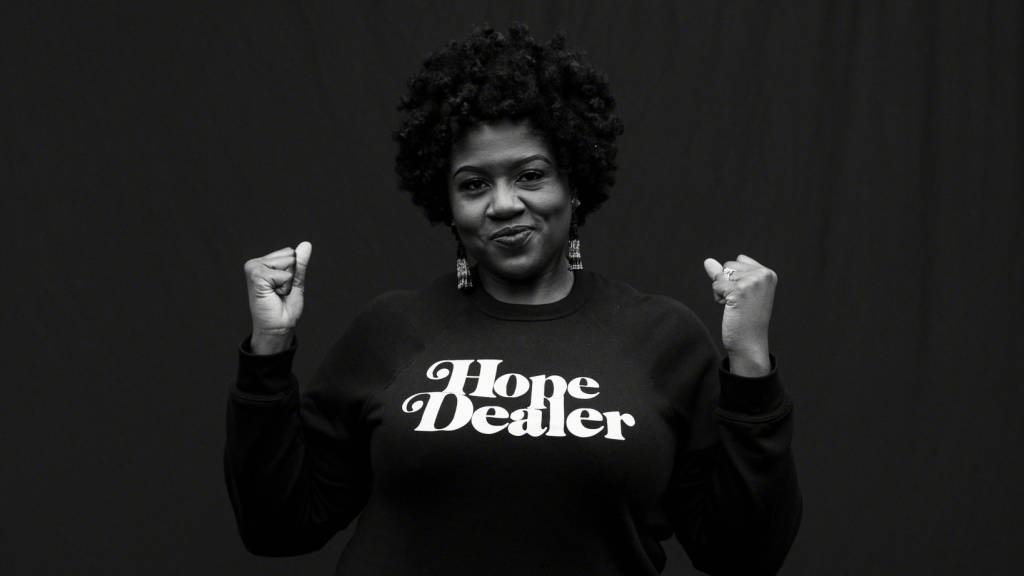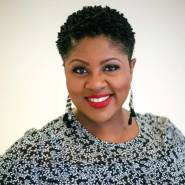Supporting Women at Work
A conversation with Shannon Cohen about holistic wellness in the workplace
Navigating the last two years of change and uncertainty has taken a toll on mental health and wellbeing at work for almost everyone. In many cases, the effects have been even greater for women, especially women of color. Finding purpose and joy at work is crucial to the holistic wellness of employees, yet so many fail to recognize its importance.
An advocate of wellbeing and self-care, Shannon Cohen focuses on leading transparent conversations about the unspoken truths of leadership and nurturing the longevity of leaders. We spoke with her about cyclical burnout and how to think differently about productivity at work.

360: What inspired you to get into the work you do today?
SC: When I was in graduate school, I started a consultancy working with organizations around community revitalization and urban renewal. I kept getting hired because people were saying, “We’re on fire. Help our stakeholders not smell smoke.” But nobody was talking about the impact emotional smoke inhalation was having on people in executive leadership. I started questioning leadership longevity and began to wonder, does success mean cyclical burnout?
Around that time, I won a 40 under 40 award, and I don’t remember much about the award ceremony because I was exhausted. I began to realize I don’t want the veneers of success if I’m holistically not well. What does it matter if I am shattering metrics and exceeding deliverables if I feel like shattered glass on the inside? That’s when I started reimagining my relationship with work.
When I was on maternity leave, I started a blog about the dissonance I was experiencing between these external wins and not being my best emotionally. It quickly grew to 3,000 subscribers, and what astounded me is that many were elected leaders, CEOs and executives. That was an “aha” moment for me. Often no one asks people with titles of positional power if they’re alright because we measure wellness for people with positional power by work outcomes, not the state of their soul. That’s how I got into the business of being a hope dealer — curating spaces, products and experiences that nourish human souls.
360: How do you define wellbeing at work for your own organization and your clients?
Wellness starts with seeing ourselves. I often ask people, “What’s the lowest you let your laptop or cellphone battery go?” Then I ask, “If you were a battery, what would your battery life be?” Many of us live our days at less than 20% battery life.
We carry chargers for our devices and respond to the cues they give us to plug them in when the battery is low. Our bodies are the same way, yet we ignore the cues our bodies give us to slow down or recharge.
360: How has the pandemic disproportionately impacted women, particularly women of color?
We’ve seen the language “We’re all in this together,” but the reality is everyone is not positioned the same. And that has been really impactful when you consider all the data about women being pillars or rocks in their homes, marketplaces and in their communities.
Many companies made it mandatory to have your cameras on during virtual meetings because we think, “If I can’t see you, how do I know you’re being productive?” For women who are caregivers trying to make sure their house doesn’t look messy because now living rooms or kitchens were becoming conference rooms, there was additional stress of managing perception as well as performance.
And for communities of color, we had family members dying (at a higher rate). We were going to funerals over FaceTime and Facebook. And we saw the murder of black bodies. All of this was happening at the same time, and people were expected to appear like everything was fine.
360: How can we better support women in the workplace?
One of the things organizations and institutions have to remember is you don’t want to lose great talent — and you don’t have to. At Shannon Cohen, Inc. we’re always centering around our employees’ aspirations, ambition and wellness. If you lead a team with women and you don’t know about their aspirations, ambition and wellness, then you’re at threat of losing them.
You also have to think about how you’re investing and sponsoring all three. To tell someone you believe in them without investing in them is like getting into a car with no gasoline. A lot of women, especially women of color, are high performers. They’ve been told, “We couldn’t do this without you. You’re amazing.” But there is not an investment or a career pathway presented to them, and there’s frustration and angst there.
I think this is the year of boldness. This is also the year for women to speak up with the confidence and courage to pursue their dream positions.
360: In the face of burnout and a competitive talent market, how can we think differently about what it means to be productive at work?
We have to honor and invite people to share what boundaries help them be most productive. It requires greater intentionality around communication and letting people be honest about the realities they navigate. We may think those things are small, but just honoring people and what they need to show up as their best self can be so liberating because so many places don’t have that — especially with women and women of color.
360: Is there a moment in your career when a woman supported you or pushed you in a direction that you didn’t see for yourself? How did that impact you?
A pivotal moment for me was when I was starting my blog, I was invited to speak at a leadership conference. Afterwards a woman approached me with a fist of money and asked, “Where’s your product table?” I told her I didn’t have one. Then she asked, “Where’s your book?” I told her I didn’t have one. Then she said, “The next time I see you, you better have a product and books.” And that changed my life. This woman, who is still nameless for me, saw something in me I didn’t see in myself. And we need people around us like that.
Now I try to be that for other women. And then I do my best to help them address the obstacles, ceilings and floors that try to impair their movement.

Shannon Cohen is the founder and CEO of Shannon Cohen, Inc. and specializes in developing customized emotional intelligence, equity and wellness services for organizations across diverse sectors and industries, including Steelcase. She is an author, podcaster, and owner of an inspirational product line called Tough Skin, Soft Heart, which includes a signature brand of greeting cards that are sold in stores nationwide.


